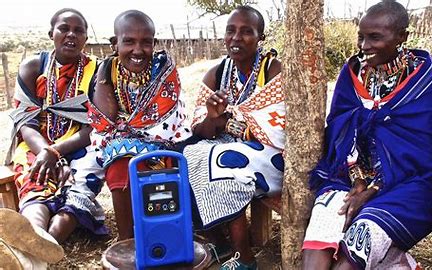DAKAR, January 20, 2025 — On the occasion of World Radio Day, Dakar, Senegal will welcome, on February 13 and 14, 2025, the 2nd AUB Media Summit on Climate Change and Disaster Risk Reduction.
According to the press release seen by this news channel, the international meeting, organised by the African Union of Broadcasting [AUB], the United Nations Office for Disaster Risk Reduction [UNDRR] and the Senegalese Radio Television [RTS] will bring together journalists, experts, climatologists /environmentalists, policy makers policymakers and representatives of civil society to discuss the crucial role of radio in the fight against climate change.
Under the theme, “Reaching the last mile: Radio for Climate Action” this summit will explore the means to strengthen the use of radio as a tool for awareness, education and mobilization to deal with climatic challenges.
Why radio?
In a super connected world, radio remains an essential media, especially in rural areas and isolated communities. Its ability to reach a large audience, its portability and its resilience makes it an essential tool to disseminate vital information on climate change and encourage prevention.
The summit will aim to share best practices, in particular by exchanging experiences on the use of radio to raise awareness of climate emergency; to strengthen the capacities of journalists and radio producers in the field of climate and to promote partnerships between the various actors involved in the fight against climate change.
By bringing together experts from different backgrounds, this summit aims to strengthen the role of radio in the fight against climate change and to contribute to a more sustainable future for all.
Radio’s relevance in everyday life and in emergencies is just as important today as it has always been. And possibly even more so today. Here are my top 10 reasons why:
- Radio reaches the most number of people
Radio remains the most used mass communications medium in Africa. With the widest geographical reach, it has the biggest audience numbers compared with other media. Despite rapid urbanisation over the past two decades, more than half of Africans still live in rural areas.
- Radio doesn’t run out of air time or data
Radio is free, always and forever. No one has to worry about topping up air time or running out of data.
- Radio opens up world for the visually impaired
Many African countries have higher than average numbers of visually impaired people in than other parts of the world. Radio is often not just a lifeline to the visually impaired, but also for those who are physically challenged, especially in rural areas,
- Radio goes where newer technologies can’t reach
It is beyond electricity, beyond a mobile signal, even when electricity or internet connectivity is unreliable. For millions of Africans, their radios are the only reliable technology they have ready access to.
- Radio is democratic
Radio reaches rich and poor alike and those who are disabled. Educated. Uneducated. Young. Old. Every tribe, every ethnic group, every region, each gender and race. Without radio, Africa would be less free.
- Radio informs, entertains and educates
Programmes are broadcast in local languages – whether it’s nutrition information for mothers, health updates for families, conservation farming for farmers, school lessons for children or a soap opera drama for everyone. Radio is the most effective way of delivering information in remote corners where having the right knowledge can mean the difference between harvest and hunger, between feeling confident or humiliated, or even between life and death.
- Radio is trusted
Africans trust news and information, for example, that is broadcast on the BBC World Service, as well as local and community radio stations. People often refer to the voices on the radio as their “friends”. During the pandemic, many radio stations across the continent reported increased listenership.
- Radio saves lives
Information is aid. When disaster strikes, people turn to the airwaves. Survivors quickly need practical information like where to find food, medicine or transport. Radio can provide psycho-social support as people struggle with losses or are traumatised whether these be from a natural disaster like a cyclone in Mozambique or conflict in South Sudan.
- Radio sparks the imagination
Radio is the invisible medium that has the greatest effect in stimulating the imagination of listeners in a way visual communication channels do not.
- Radio builds community
Radio is a social medium, fostering participation and engagement. It isn’t passive; it’s interactive where listeners can have their say on call-in shows or send text messages. It holds a safe space for people to share their stories. Local stations create content that is relevant and important to the community to which it broadcasts.
Added functionality
Lifeline Energy has enhanced functionality to traditional radio by adding MP3 playback to some of our products. Now radio programmes can be recorded and not lost to listeners after being aired. Audio content can also be loaded on to the players for 24/7 listening which means listeners never have to miss a broadcast.
During Covid-19
During the Covid-19 pandemic, radio in Uganda kept listeners informed about the latest developments and provided a platform for people to share their experiences and connect with others. Messages on how to prevent the spread of the virus saved countless lives. Radio kept listeners entertained and distracted from the stresses of the pandemic. Learners in the country and around the world tuned into radio stations to receive school lessons via the airwaves when schools were closed.
”I have little doubt that radio will continue to grow in importance, especially with the growing number of community radio stations around the continent [Africa],” said Kristine Pearson, CEO/Founder Lifeline Energy & LESA Communications.
https://thecooperator.news/bugisu-cooperative-union-opens-ugandas-first-cooperative-radio-station/
Buy your copy of thecooperator magazine from one of our country-wide vending points or an e-copy on emag.thecooperator.news
